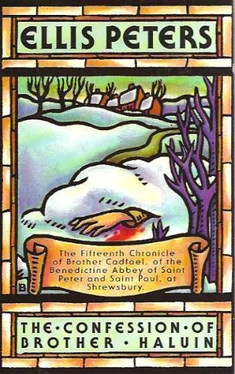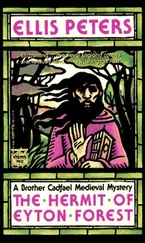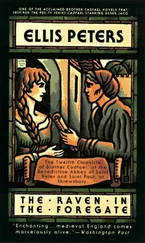Ellis Peters - The Confession of Brother Haluin
Здесь есть возможность читать онлайн «Ellis Peters - The Confession of Brother Haluin» весь текст электронной книги совершенно бесплатно (целиком полную версию без сокращений). В некоторых случаях можно слушать аудио, скачать через торрент в формате fb2 и присутствует краткое содержание. Жанр: Исторический детектив, на английском языке. Описание произведения, (предисловие) а так же отзывы посетителей доступны на портале библиотеки ЛибКат.
- Название:The Confession of Brother Haluin
- Автор:
- Жанр:
- Год:неизвестен
- ISBN:нет данных
- Рейтинг книги:4.5 / 5. Голосов: 2
-
Избранное:Добавить в избранное
- Отзывы:
-
Ваша оценка:
- 100
- 1
- 2
- 3
- 4
- 5
The Confession of Brother Haluin: краткое содержание, описание и аннотация
Предлагаем к чтению аннотацию, описание, краткое содержание или предисловие (зависит от того, что написал сам автор книги «The Confession of Brother Haluin»). Если вы не нашли необходимую информацию о книге — напишите в комментариях, мы постараемся отыскать её.
The Confession of Brother Haluin — читать онлайн бесплатно полную книгу (весь текст) целиком
Ниже представлен текст книги, разбитый по страницам. Система сохранения места последней прочитанной страницы, позволяет с удобством читать онлайн бесплатно книгу «The Confession of Brother Haluin», без необходимости каждый раз заново искать на чём Вы остановились. Поставьте закладку, и сможете в любой момент перейти на страницу, на которой закончили чтение.
Интервал:
Закладка:
“Son,” said Cadfael, between sympathy and exasperation, “I am fettered as fast as you, and you should know it. My orders are to go with you in case you founder, and to take care of you if you do. You are on your own business, I am on the abbot’s. If I cannot take you back with me I cannot go back.”
“But your work,” protested Haluin, dismayed but unwavering. “Mine can well wait, but you’ll be missed. How will they manage without you for so long?”
“As best they can. There’s no man living who cannot be done without,” said Cadfael sturdily, “and just as well, since there’s a term to life for every man. No, say no more. If your mind’s made up, so is mine. Where you go, I go. And since we have barely an hour of daylight left to us, and I fancy you have no wish to seek a bed here in Hales, we had better move gently on, and look for a shelter along the way.”
Adelais de Clary rose in the morning and went to Mass, as was her regular habit. She was meticulous in her religious observances and in almsgiving, keeping up the old custom of her husband’s household. And if her charity seemed sometimes a little cold and distant, at least it was constant and reliable. Whenever the parish priest had a special case in need of relief, he brought it to her for remedy.
He walked with her to the gate after the office, dutiful in attendance. “I had two Benedictines come visiting yesterday, ” he said as she was drawing her cloak about her against a freshening March wind. “Two brothers from Shrewsbury.”
“Indeed!” said Adelais. “What did they want with you?”
“The one of them was crippled, and went on crutches. He said he was once in your service, before he took the cowl. He remembered Father Wulfnoth. I thought they would have come to pay their respects to you. Did they not?”
She did not answer that, but only observed idly, gazing into distance as though only half her mind was on what was said, “I remember, I did have a clerk once who entered the monastery at Shrewsbury. What was his business here at the church?”
“He said he had been spared by death, and was about making up all his accounts, to be better prepared. I found them beside the tomb of your lord’s father. They were in some error that a woman of your house was buried there, eighteen years ago. The lame one had it in mind to spend a night’s vigil there in prayers for her.”
“A strange mistake,” said Adelais with the same tolerant disinterest. “No doubt you undeceived him?”
“I told him it was not so. I was not here then, of course, but I knew from Father Wulfnoth that the tomb had not been opened for many years, and what the young brother supposed could not be true. I told him that all of your house now are buried at Elford, where the head of the manor lies.”
“A long, hard journey that would be, for a lame man afoot,” said Adelais with easy sympathy. “I hope he did not intend to continue his travels so far?”
“I think, madam, he did. For they declined to rest and eat with me, and sleep the night over, but set off again at once. ‘There I shall find her,’ the young one said. Yes, I am sure they will have turned eastward when they reached the highroad. A long, hard journey, indeed, but his will was good to perform it.”
His relationship with his patroness was a comfortable and easy one, and he did not hesitate to ask directly, “Will he indeed find the gentlewoman he’s seeking at Elford?”
“He well may,” said Adelais, pacing evenly and serenely beside him. “Eighteen years is a long time, and I cannot enter into his mind. I was younger then, I kept a bigger household. There were cousins, some left without fortune. My lord kept a father’s hand on all of his blood. In his absence and as his regent, so did I.”
They had reached the churchyard gate, and halted there. The morning was soft and green, but very still, and the cloud cover hung heavy and low.
“There will be more snow yet,” said the priest, “if it does not turn to rain.” And he went on inconsequently: “Eighteen years! It may be that this monk in his time with you was drawn to one of these young cousins, after the way of the young, and her early death was greater grief to him than ever he ventured to let you know.”
“It may be so,” said Adelais distantly, and drew up the hood of her cloak against a few infinitely fine spears of sleet that drifted on the still air and stung her cheek. “Good day, Father!”
“I will pray,” said the priest after her, “that his pilgrimage to her grave may bring comfort and benefit to him living, and to the lady dead.”
“Do so, Father,” said Adelais without turning her head. “And do not fail to add a prayer for me and all the women of my house, that time may lie lightly on us when our day comes.”
Cadfael lay awake in the hayloft of the forester’s holding in the royal forest of Chenet, listening to the measured breathing of his companion, too constant and too tense for sleep. It was the second night since they had left Hales. The first they had spent with a solitary cottar and his wife a mile or so beyond the hamlet of Weston, and the day between had been long, and this second-shelter in the early reaches of the forest came very warmiy and gratefully. They had gone early to their beds in the loft, for Haluin, at whose insistence they had continued so far into the evening, was close to exhaustion. Sleep, Cadfael noted, came to him readily and peacefully, a restoring mercy to a soul very troubled and wrung when awake. There are many ways by which God tempers the burden. Haluin rose every morning refreshed and resolute.
It was not yet light, there might still be an hour to dawn. There was no movement, no rustling of the dry hay from the corner where Haluin lay, but Cadfael knew he was awake now, and the stillness was good, for it meant that he lay in the languor of ease of body, wherever the wakeful mind within might have strayed.
“Cadfael?” said a still, remote voice out of the darkness. “Are you awake?”
“I am,” he said as softly.
“You have never asked me anything. Of the thing I did. Of her... “
“There is no need,” said Cadfael. “What you wish to tell will be told without asking.”
“I was never free to speak of her,” said Haluin, “until now. And now only to you, who know.” There was a silence. He bled words slowly and arduously, as the shy and solitary do. After a while he resumed softly; “She was not beautiful, as her mother was. She had not that dark radiance, but something more kindly. There was nothing dark or secret in her, but everything open and sunlit, like a flower. She was not afraid of anything, not then. She trusted everyone. She had never been betrayed - not then. Only once, and she died of it.”
Another and longer silence, and this time the hay stirred briefly, like a sigh. Then he asked almost timidly: “Cadfael, you were half your life in the world - did you ever love a woman?”
“Yes,” said Cadfael, “I have loved.”
“Then you know how it was with us. For we did love, she and I. It hurts most of all,” said Brother Haluin, looking back in resigned and wondering pain, “when you are young. There is nowhere to hide from it, no shield you can raise between. To see her every day... and to know that it was with her as it was with me... “
Even if he had put it from him all these years, and tried to turn hands and mind and spirit to the service he had undertaken, of his own will, in his extremity, he had forgotten nothing; it was there within him ready to quicken at a breath, like a sleeping fire when a door is opened. Now at least it could escape into air, into the world of other men, where it could touch other men’s sufferings and receive and give compassion. From Cadfael there were no words needed, only the simple acknowledgment of companionship, the assurance of a listening ear.
Читать дальшеИнтервал:
Закладка:
Похожие книги на «The Confession of Brother Haluin»
Представляем Вашему вниманию похожие книги на «The Confession of Brother Haluin» списком для выбора. Мы отобрали схожую по названию и смыслу литературу в надежде предоставить читателям больше вариантов отыскать новые, интересные, ещё непрочитанные произведения.
Обсуждение, отзывы о книге «The Confession of Brother Haluin» и просто собственные мнения читателей. Оставьте ваши комментарии, напишите, что Вы думаете о произведении, его смысле или главных героях. Укажите что конкретно понравилось, а что нет, и почему Вы так считаете.












